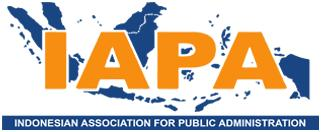Adaptive Capacity As a Form of Bureaucratic Reform in Enhancing Tax Services
Abstrak
Bureaucratic reform is the government's challenge in services to the community. The strategy that needs to be implemented by public organizations is to encourage adaptive capacity because of the massive public demand for convenience and quality services. This study aims to analyze and explore bureaucratic reform and the adaptive capacity of public organizations which act as leading sectors in tax services in Makassar City. This study applies qualitative methods through case studies strategy as an exploratory type. Information was obtained from stakeholders including local government, banking, the community and other stakeholders who actively contribute and are involved in the tax service process. The main data was obtained from interviews with informants, observing research objects and searching for related documents. Interactive analysis is the main analysis with activities of collecting data, reducing data, presenting data and drawing conclusions. The research results show that regional governments have realized bureaucratic reform and adaptive capacity in the form of strategies and innovations in digital-based tax services in order to encourage an increase in Regional Original Income. Adaptive capacity makes an important contribution in driving the success of the bureaucratic reform agenda but requires strengthening local regulations.
Kata Kunci
Teks Lengkap:
PDFReferensi
Anggorokasih, Anastasia A. (2021). Adaptive Governance in Overcoming the Covid-19 Pandemic (Case Study of Panngungharjo Village, Sewon, Bantul, DIY). Faculty of Social Science and Political Science. Yogyakarta: Gadjah Mada University.
Chakravarthy, B.S., (1982). Adaptation: a promising metaphor for strategic management. The Academy of Management Review 7(1), 35–44.
Darmawan, Eki., Atmojo ME (2020). Work From Home Policy for State Civil Apparatus during the Covid-19 Pandemic. The Journalish : Social and Government.3(1):1-5.
Eakin, H., Eriksen, S., Eikeland, P.O. (2011). Public Sector Reform and Governance for Adaptation: Implications of New Public Management for Adaptive Capacity in Mexico and Norway. Environmental Management 47, 338–351. https://doi.org/10.1007/s00267-010-9605-0
Folke, C., Hahn, T., Olsson, P., & Norberg, J. (2005). Adaptive governance of social-ecological systems. Annu. Rev. Environ. Resour., 30, 441-473.
Hanlon, M., Hoopes, J. L., & Slemrod, J. (2019). Tax reform made me do it!. Tax Policy and the Economy, 33(1), 33-80.
Hanssen-Bauer, J., & Snow, C. (1996). Responding to hypercompetition: The structure and processes of a regional learning network organization. Organization Science, 7, 413-427.
Giddens, A. (1984). The constitution of society. Cambridge, MA: Polity.
Giezen, M., Bertolini, L., & Salet, W. (2015). Adaptive capacity within a mega project: A case study on planning and decision-making in the face of complexity. European Planning Studies, 23(5), 999-1018.
Lacroix, K. M. (2011). Arizona Water Management Along the Adaptive Cycle: What can the ebb of water governance teach us about future flows?.
Oliver, C. (1997). Sustainable competitive advantage. Strategic Management Journal, 18, 697-713.
OPTION. (2021). Public Sector Innovation Facest: Adaptive Innovation. Observatory of Public Sector Innovation (OPSI).
Parsons, T., (1964). Evolutionary Universals in Society. American Sociological Review 29(3), 339–357.
Regulation of the Minister for Administrative Reform and Bureaucratic Reform Number 25 of 2020 concerning the 2020-2024 Bureaucratic Reform Roadmap.
Pulakos, E.D., Arad, S., Donovan, M.A., & Plamondon, K.E. (2000). Adaptability in the workplace: Development of a taxonomy of adaptive performance. Journal of applied psychology, 85(4), 612.
Resia, Oka 2018. Adaptive Capacity of Regional Government in Managing Potential Resources in East Kutai Regency. Journal of Law and Social Sciences, 2 (3):1-4
Smith, B., Burton, I., Klein, R.J.T. & Wandel, J. (2000) An anatomy of adaptation to climate change and variability, Climatic Change, 45(1), pp. 223–251.
Staber, U., & Sydow, J. (2002). Organizational Adaptive Capacity: A Structuration Perspective. Journal of Management Inquiry, 11(4), 408-424.https://doi.org/10.1177/1056492602238848
Zaenuri, M. (2014). Managing Tourism-Disasters: The Need for a Paradigm Change in Tourism Management from Adaptive Governance to Collaborative Governance. Unisia, 36(81), 157-168.
DOI: https://doi.org/10.24198/jmpp.v7i2.50386
Refbacks
- Saat ini tidak ada refbacks.
Jurnal Manajemen Pelayanan Publik Indexed By:



This work is licensed under a Creative Commons Attribution-ShareAlike 4.0 International License.


















21.png)



.png)